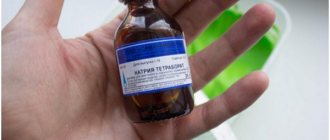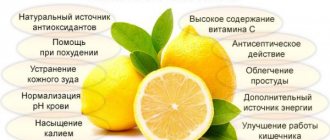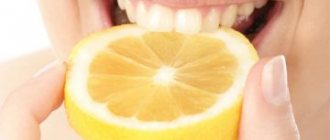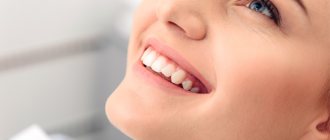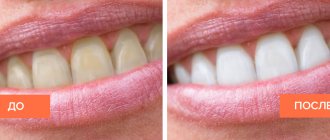March 18, 2019
Turmeric has long been a success among lovers of traditional medicine. It is taken both internally to treat diseases of the body, and externally to improve the condition of hair, facial skin, and teeth. The editors of the UltraSmile.ru portal still advise you to carefully approach even the use of such seemingly safe products and first study all the necessary information about them. That is why we have prepared material about turmeric especially for you. Read and learn a lot of interesting things.
Turmeric is a safe product for teeth whitening
Oddly enough, this bright-looking, yellowish-golden product, which is often used in the food and textile industries to color cheeses and butters, liqueurs, rice dishes, cotton and silk fabrics, can also be used to lighten enamel. Unlike soda, lemon or salt, which are often used for these purposes at home, turmeric does not injure the enamel and does not have an abrasive or erosive effect on it. It has a gentle effect.
Turmeric is often used to whiten teeth
Advice from Dr. Zubastik
Try my recipes, especially the turmeric and water paste. The result will really be, the enamel will brighten. But do not overuse ingredients such as salt, soda and lemon. Yes, they will give a pleasant whitening effect. But thin sensitive enamel can be destroyed, which will lead to the development of caries.
It is not possible to completely replace toothpaste with turmeric. It does not contain fluoride, without which it is impossible to achieve oral health. Combine folk remedies with industrial ones and be sure to visit a doctor at least once a year. Only this will guarantee the preservation of a beautiful smile.
Tags: turmeric, folk remedies, whitening
About the author: Dr. Zubastik
Typically, a toothache begins to subside on the way to the clinic and finally goes away after 10 minutes of sitting in line to see the dentist.
- Related Posts
- Activated carbon for teeth whitening: following the recipe of Russian beauties
- How to whiten teeth with tea tree oil
- How to make a solution for rinsing teeth from salt or soda?
« Previous entry
Turmeric can be replaced with curry
The homeland of natural turmeric is India. There, the root or powder of this variety of plant from the ginger family has been used for more than 2.5 thousand years. The main areas of use are cooking and Ayurveda medicine. Also, turmeric is always included in spices such as curry. That is why you can use curry instead of turmeric to whiten teeth, but only if you are sure that the spice contains a natural product and not a substitute. Unfortunately, in Russia this situation occurs quite often.
Turmeric can be replaced with curry
How can you check the naturalness of a product? When rubbed on your fingers, fresh turmeric will release a very bright spicy aroma, and if the smell is very weak or absent, then this composition is unlikely to bring tangible benefits.
Turmeric will help keep your gums healthy
Turmeric is not only good for your teeth as a homemade whitening agent, but it is also good for preventing gum disease. The beneficial substances included in its composition (in particular, curcumin and essential oil) have anti-inflammatory, wound-healing, antiviral, and disinfectant effects. It increases blood circulation, regulates metabolism and improves local immunity. It is a kind of natural antibiotic and antioxidant1. Therefore, when using this product, you immediately “kill two birds with one stone”: you make your teeth whiter and your gums healthier. But there must be moderation in everything; you cannot use turmeric on a regular basis; it is enough to brush your teeth with it no more than 2-3 times a week.
The product helps to take care not only of teeth, but also of gums
How to whiten teeth with turmeric? Feedback from Internet users suggests that the most effective and safest way is to use the product instead of regular toothpaste. To do this, just add a few drops of water to ¼ teaspoon of powder, achieve the consistency of a thick cream and apply the resulting composition to the brush. It is advisable to use a separate toothbrush for these purposes, because... a natural product will still lead to permanent coloring.
“I use turmeric not only for teeth! The same paste, diluted with water to the consistency of thick sour cream, can work wonders on the skin. It helps me well with eczema, helps get rid of blackheads on my face and acne. I also tried to use it for cosmetic purposes, applying it to the face in the form of a mask - after this the skin becomes soft and smooth, toned, pink. Overall, the lifting effect is remarkable. And her grandmother recently gave her a boil. But all this can be done if you do not have intolerance to the product or hypersensitivity to it.”
Tara, review from otzovik.com
Cinnamon
Cinnamon is considered a universal medicine (like ginger). Cinnamon is an excellent antiseptic, helps with toothache and is rich in calcium. In addition, cinnamon regulates blood sugar and reduces cravings for sugar and fast carbohydrates. Thus, even indirectly, cinnamon takes care of the health of your teeth.
Beneficial features:
- Antiseptic properties;
- Reduces toothache;
- Has a general tonic effect on the body;
- Cinnamon is rich in calcium, which is important for dental health;
- Regular consumption of cinnamon reduces the need for sugar. Which also has a positive effect on overall dental health.
Application method:
- Seasoning for dishes;
- Seasoning for tea or coffee.
After brushing your teeth with turmeric, be sure to remove any remaining residue.
The guidelines for action are:
- brush your teeth with turmeric for several minutes,
- Leave the resulting mixture on your teeth for another five minutes so that it releases all its beneficial properties,
- rinse your mouth thoroughly with water or mouthwash, treat the interdental spaces with floss or irrigator,
- Repeat brushing your teeth with regular toothpaste and another toothbrush.
Brush your teeth with turmeric for a few minutes.
Why do you need to do so many different manipulations? Beauty requires sacrifice. But in fact, this must be done so that the turmeric grains are completely removed from the mouth. After all, if they get stuck in secluded corners, they will definitely not go unnoticed by colonies of harmful bacteria that will begin to appear on the teeth just a few hours after brushing. Plus, using this approach, many people try to protect themselves from unnecessary staining of enamel, gums, and lip edges yellow, because the natural product has a very bright and persistent yellow tint. And if you think about the fact that in ancient times even metals and wood were stained with turmeric, it becomes scary to leave it on your teeth for a long time.
By the way, take into account the fact that when brushing your teeth with turmeric, your clothes (if the composition has come into contact with them), fingers, sinks, and bathtubs can also stain. Stains and traces from it will need to be promptly removed, otherwise you will have to “fight” them later by resorting to cleaning products.
Ginger
Ginger is a popular spice and an unsurpassed healer - a storehouse of useful substances.
Beneficial features:
- Cleans teeth and oral cavity from bacteria;
- Positively affects gum health;
- Neutralizes pathogenic microflora in the mouth;
- Relieves pain, calms nerves.
- Helps reduce inflammatory diseases, such as stomatitis.
Application method:
- Ginger tea;
- Add to dishes;
- Compress.
If you add natural oils to turmeric, its properties will increase
Turmeric and coconut oil go well together for teeth whitening. You can also dilute the powder of this useful plant to a thick paste using olive or sunflower oils, tea tree oil. Just add a few drops to it instead of water and brush your teeth as usual. Natural oils will make the procedure even more beneficial; they will nourish the gums, kill bacteria, and have an anti-inflammatory effect.
Natural oils enhance the properties of turmeric
Reviews
There are practically no negative reviews about this newfangled product on the Internet. Mostly there are neutral and positive ones. This means that teeth cleaning actually takes place!
Many people's enamel has become a tone or two whiter - they notice it themselves. Let's listen to those who have tried using turmeric powder as toothpaste.
Maria
“At first I was skeptical about this whitening method, I thought that I would get the opposite effect. But I brush my teeth twice a week with a paste of powder and water and am happy with the result.”
Anton
“I started using a mixture of turmeric, salt and coconut oil two months ago. The teeth are so shiny, not a stain!”
Catherine
“I'm afraid of dentists. I try to go to them as little as possible. I noticed that after using turmeric, the number of visits decreased even more, and the doctor says that the teeth became noticeably whiter.”
You shouldn’t expect “Hollywood” white enamel from turmeric
Using any folk method, you must be clearly aware of this fact. Turmeric in this case is no exception. It will be able to lighten the enamel a little, returning it to its natural or natural shade. But even then, only if your teeth are not too neglected. If there is a large layer of plaque and hard deposits on them, and you are a coffee and cigarette lover, then the product will not be able to significantly affect the shade of the enamel - here you need the help of a qualified dentist, professional oral hygiene, and in-office whitening techniques. The product will not help improve the aesthetics of a smile even with non-carious problems, for example, with a wedge-shaped defect or enamel fluorosis.
Possible contraindications
Before using whitening spice paste, you need to familiarize yourself with a number of contraindications:
- do not use bleaching powder if you have kidney stones, ulcers, or problems with the ducts or gall bladder;
- when taking strong medications, it is better to postpone whitening using spices until the end of the course of taking pills;
- pregnancy and breastfeeding are also contraindications;
- possible decrease in testosterone levels in men;
- increased sensitivity and damage to enamel.
Turmeric can cause allergies
We do not recommend using it if you are sensitive to various allergens, because simply the product can cause irritation of the oral mucosa, and its spicy smell can provoke the development of allergic rhinitis, lacrimation and even Quincke's edema. To avoid this, first test the effect of the paste diluted to clean your teeth on your wrist, leave it on for about ten minutes and remove thoroughly. If no negative reactions occur within 24 hours, then you can experiment further, but with caution!
Turmeric can cause allergies
Do not use turmeric before going to the dentist
This should not be done if surgical intervention is planned - tooth extraction or implantation. This product has long been famous for its ability to thin the blood, so it will harm those with poor blood clotting. During the treatment process, any impact on the gums and soft tissues can complicate the doctor's work.
Notice
: Undefined variable: post_id in
/home/c/ch75405/public_html/wp-content/themes/UltraSmile/single-item.php
on line
45 Notice
: Undefined variable: full in
/home/c/ch75405/public_html/wp-content /themes/UltraSmile/single-item.php
on line
46
Rate this article:
( 3 ratings, average: 5.00 out of 5)
whitening
- Zafir A, Banu N. Antioxidant potential of fluoxetine in comparison to Curcuma longa in restraint-stressed rats. Eur J Pharmacol. 2007;572(1):23-31
Consulting specialist
Kashaeva Victoria Nikolaevna
Specialization: Dental hygienist Experience: 8 years
Comments
I am now two months pregnant, can I try brushing my teeth with turmeric, will it cause any harm?
Tatyana (03/31/2019 at 12:25) Reply to comment
- Dear Tatyana! It is not advisable to use turmeric for women who are pregnant or breastfeeding. In particular, this restriction applies to those who use it internally for medicinal purposes, but when cleaning your teeth, the product can enter the stomach through the mouth or you can swallow a little of the composition - this is not dangerous, but it is worth remembering that turmeric can cause uterine contractions, as well as provoke the development of allergies and diathesis in the child.
Editorial staff of the portal UltraSmile.ru (04/04/2019 at 09:07) Reply to comment
Good afternoon. If you have several metal-ceramic crowns on your front teeth, you can whiten your living teeth with turmeric. Will turmeric stain metal-ceramic crowns? After all, it is written that it leaves stains even on the sink, etc.
Marina (05/18/2019 at 00:30) Reply to comment
Write your comment Cancel reply
Carnation
Cloves – has a pronounced antiseptic effect. Even in ancient China, at the imperial court, courtiers were required to chew cloves in order to protect the rulers from possible infections. Cloves are also good for relieving pain.
Beneficial features:
- Relieves pain;
- An excellent remedy for the prevention of infectious diseases;
- Strengthens teeth and keeps them healthy;
- Has antiseptic properties.
Application method:
- Add to dishes and drinks;
- Chew whole buds.
